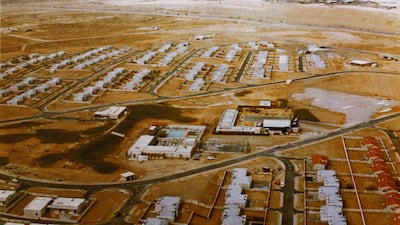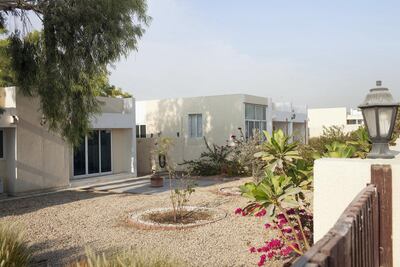That Jebel Ali was once a tiny village in the desert seems improbable given it now rests in the shadow of the towering skyscrapers of Dubai Marina. But despite the dramatic changes that have gone on around it, much remains of the community feel it first developed when port workers moved in four decades ago.
The district's status as one of the city's first residential communities came into focus this week when its much-loved Jebel Ali Club, one of Dubai’s oldest and most treasured venues, was revamped and opened to the public.
Its British-style pub remains - much to the relief of long-term patrons - but brand new facilities now accompany the centre and village that hold much nostalgia for its residents.
The club has been a second-home for countless residents since it was established in 1977. It reopened on August 24 with a new family-friendly section and separate club that retains some of the fittings of the original.
The club is part of the historic Jebel Ali Village, a community built in the late 1970s for the mainly British and Dutch staff working on the construction of Jebel Ali Port.
In 2008, Nakheel closed the village for redevelopment (the club was unaffected). But the financial crisis hit and the area remained dormant until Nakheel restored and reopened the village in 2013.
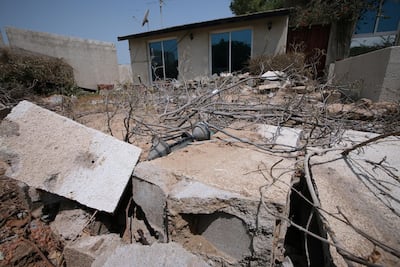
The new club and revitalised village tell the history of a rapidly developing part of Dubai that was long considered remote.
Garry James moved into the village in the late 1980s when he arrived from the UK. His wife’s father had worked on the port. The village comprised of up to 300 villas, the club and a school.
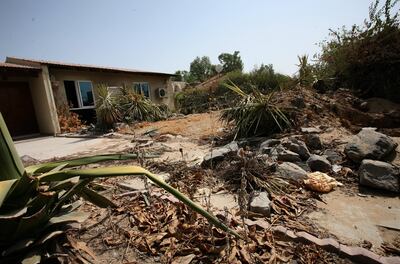
“Jebel Ali was literally in the boonies. If you said to anyone that you lived in Jebel Ali, they were: ‘why do you live out there?’ There was nothing. There was the village. That was it,” says Mr James, who worked on reconverting oil rigs into floating accommodation at the time.
Then, Dubai life centred around the Creek. But forget taking the metro or the multi-lane Sheikh Zayed Road of today.
The old Abu Dhabi road was a two-lane road used by taxis, lorries and cars. Camels walked around freely. Lucinda Smith moved into the village in 1987, when she was just ten. She lived there for a decade with her parents and recalls a more freewheeling time.
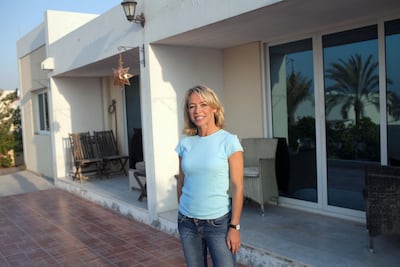
“In those days, it was completely different. There were camels roaming around the village. There was a lady living there who had a horse and would let it roam around. Completely different set up,” says Ms Smith.
Unsurprisingly, the village had few public services. A supermarket opened in the 1980s but residents recall having to travel into old Dubai, about 30 kilometres down the road, to visit the mall.
“It was a mission to go to town. It was a day out. You would only do one trip and try to do everything. We went shopping in Karama and another mall in Deira. Everyone wore the same clothes from those two places,” says Ms Smith, with a chuckle.
You could also forget simply walking to the local café for a snack. “As teenagers we used to hitchhike from Jebel Ali into Old Dubai in those little vans to get shawarmas.”
Jebel Ali Village may have been cut-off from the Creek. But life in a tight-knit community inculcated a unique spirit that is fondly remembered to this day. The club was at the centre of this and it served more as a community centre rather than somewhere you went for a meal or drink.
“If you had a problem, you could go the club and ask someone. If you wanted a job, you could go up there and talk to someone. Everybody helped each other. It was lovely. And we still miss it today,” recalls Mr James.
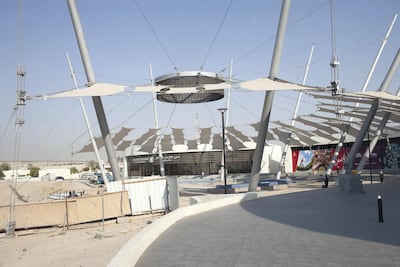
John Morrison, a Scottish worker for BK Gulf who arrived in 1978, agrees. “It really was the first social centre. The Dutch used to bring in the Dutch swing band and things like that so it was pretty popular. Plus you didn’t have to go uptown.”
But Jebel Ali would not be immune to the dizzying pace of change taking place across Dubai. After the port came the Jebel Ali freezone and the industrial area.
Other communities cropped up around the village and by 2005, Ibn Battuta Mall had been built. Now it is surrounded by communities such as Discovery Gardens and The Greens. The village is no longer isolated and the club is no longer just for people living there.
___________
Read more:
Time Frame: Old neighbourhood renewed
Jebel Ali residents pull together to help neighbours with storm damage
____________
The expansion of Jebel Ali must also be seen in the wider context of development in the southern part of the emirate.
Sheikh Rashid, the father of Dubai, also had plans for an airport in Jebel Ali to go with the port. This never happened at the time but Al Maktoum Airport, just a few kilometres away, opened in 2010.
The airport is part of the Dubai South project, and will become the world’s largest airport when fully operational. Dubai South is also the site of the Expo 2020. Dubai Parks and Resorts, meanwhile, opened down the road in 2016, featuring theme parks such as Legoland and Bollywood.
Now Jebel Ali is no longer in the middle of nowhere but central to the future of Dubai.
Jebel Ali Village also got a new lease of life in 2013. Closed and earmarked for redevelopment in 2008, Nakheel breathed new life into the village in 2013. Former tenants moved back in and the community spirit of the pioneering days lives on.
Both Mr James and Ms Smith moved back, with Ms Smith moving to the same villa she lived in during the 1980s.
"It has the same spirit," she says. "Nakheel have tried to keep the same kind of community here. So there is a great spirit. When the flooding happened [March, 2016], everyone got together and helped each other. That side of the community is definitely here, as it was. And I don’t think you can find that anywhere else in Dubai."
Now, forty years on from when it first opened, the club has also been rejuvenated. A four-screen cinema and more restaurants are set to follow at the location. Other facilities such as the swimming pool and tennis courts are operating as normal. But the ten-million dollar question is: will it be the same as the old club?
"Dubai has changed enormously over the past ten years. I couldn’t pinpoint it to Jebel Ali," says Mr James. "In the old days, no matter what restaurant you walked into, you knew someone. That doesn’t happen anymore. But that’s progress and becoming a big city."
"They’ve done a lovely job,” he says of the new club. “Will it still have the atmosphere? I hope so. We will see over time."
